LEI LEI
ROMANCE IN LUSHAN CINEMA
CURATED BY BÉRÉNICE ANGREMY & VICTORIA JONATHAN
This project originated from an old photograph of the artist at Lushan Mountain in 1988. There’s nothing of the real Lushan in the photograph, taken in a photo studio. Three-year-old Lei Lei and his mother are sitting in a cardboard car in a reconstituted Chinese traditional landscape. Using black-and-white amateur photos from flea markets, postcards, propaganda images from the Mao era, screenshots from the film Romance on Lushan Mountain (the first romance film made after the Cultural Revolution, in 1980), and photos turned up in Web searches, Lei Lei creates a video collage mixing individual and collective memory. The artist’s nostalgia serves as the starting point of a quest for truth regarding history, family, and personal identity. Which is more significant nowadays, the photograph as a work of art or as archival image? Which is more important, the picture or the process of image production; the fact that an image is viewed or the context in which it is viewed? It is also a reflection on the image and the status of the author.

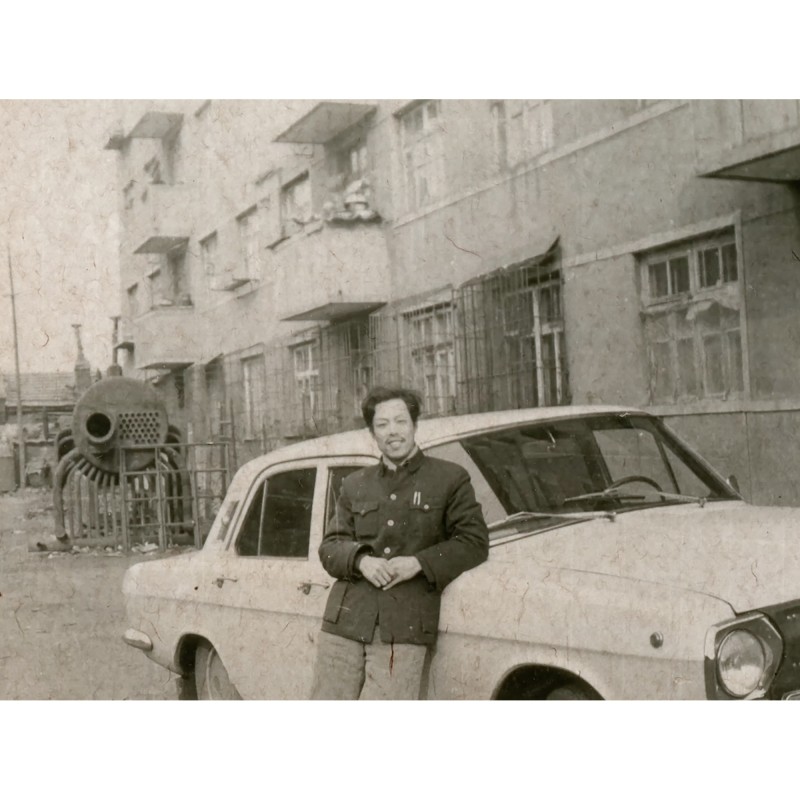 Lei Lei, film still from Romance in Lushan Cinema, 2019. Courtesy of the artist.
Lei Lei, film still from Romance in Lushan Cinema, 2019. Courtesy of the artist.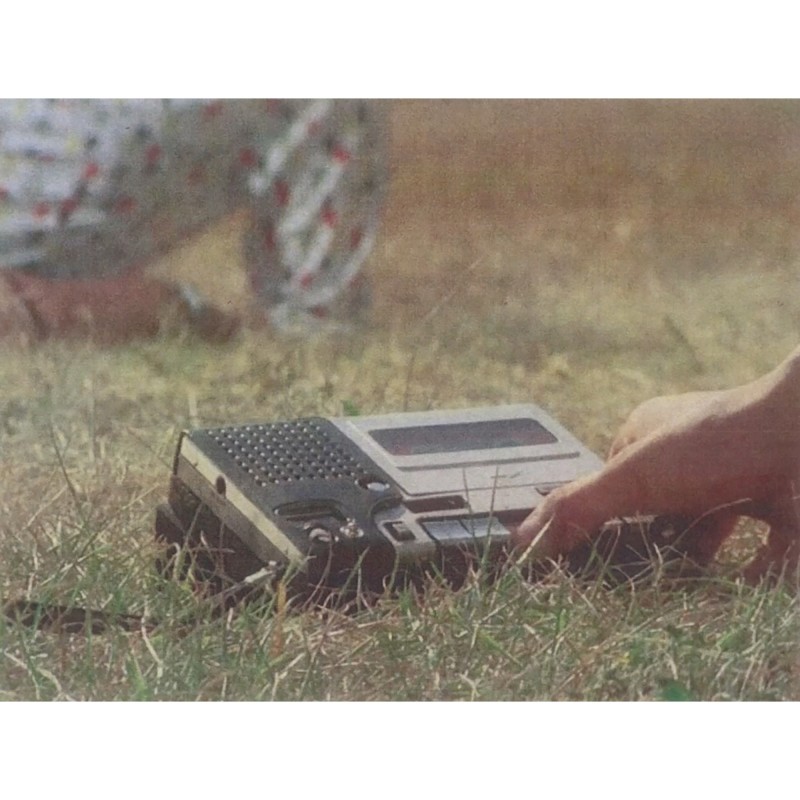 Lei Lei, film still from Romance in Lushan Cinema, 2019. Courtesy of the artist.
Lei Lei, film still from Romance in Lushan Cinema, 2019. Courtesy of the artist.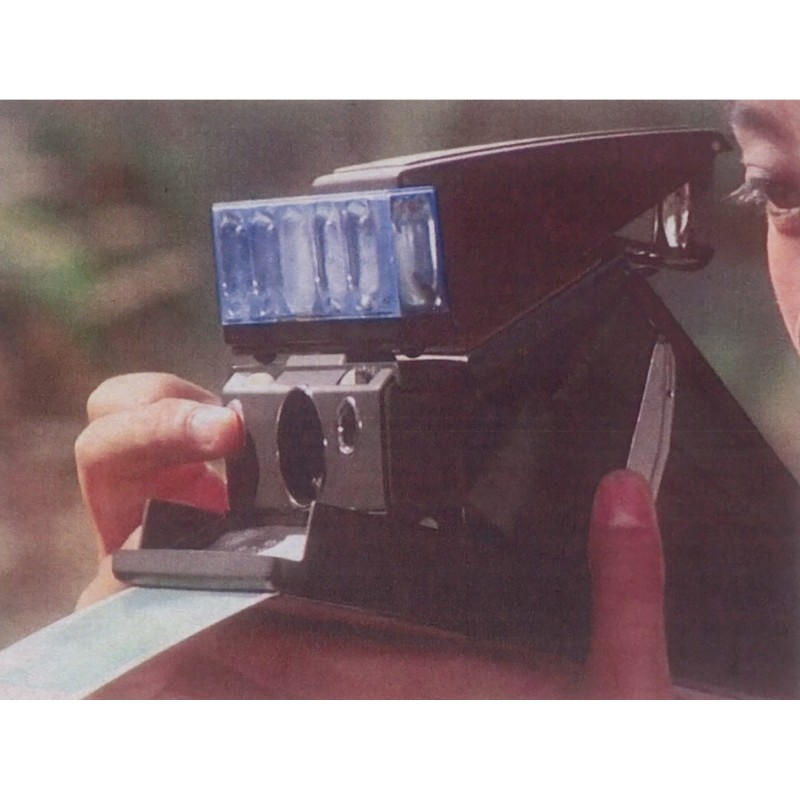 Lei Lei, film still from Romance in Lushan Cinema, 2019. Courtesy of the artist.
Lei Lei, film still from Romance in Lushan Cinema, 2019. Courtesy of the artist.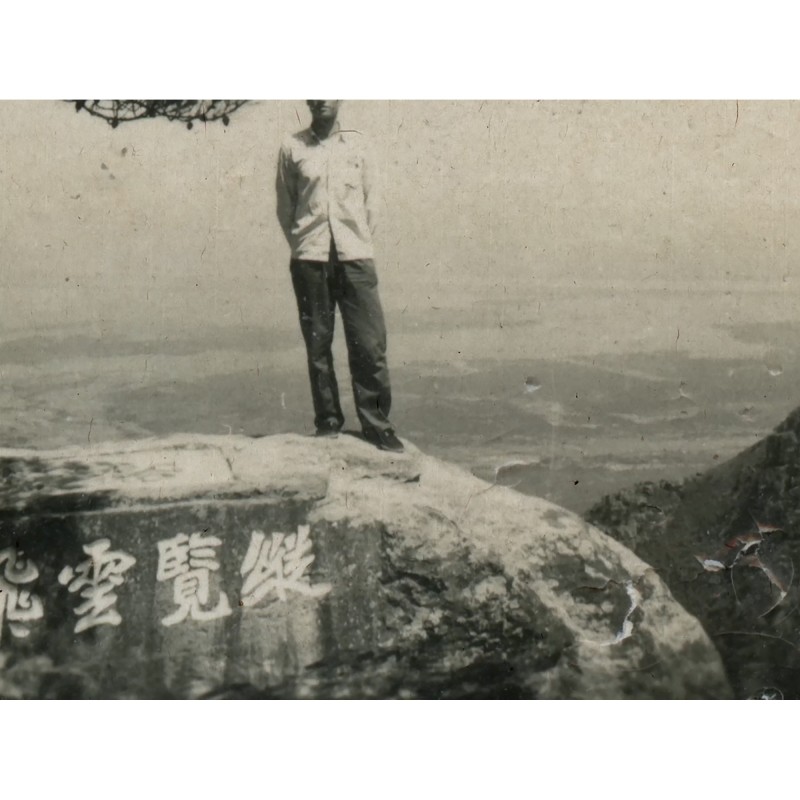 Lei Lei, film still from Romance in Lushan Cinema, 2019. Courtesy of the artist.
Lei Lei, film still from Romance in Lushan Cinema, 2019. Courtesy of the artist.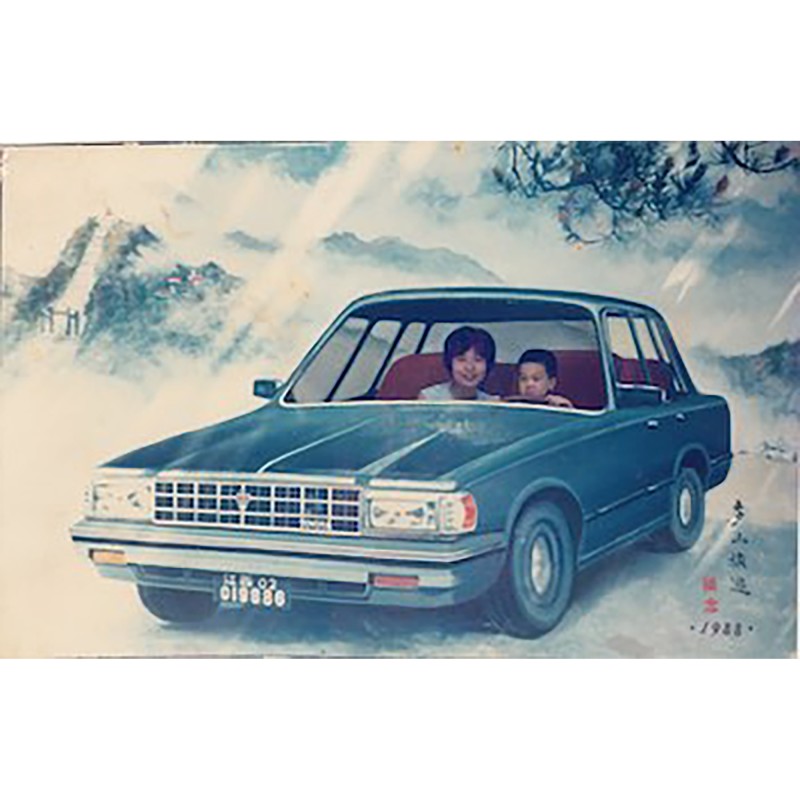 Lei Lei, Romance in Lushan Cinema, 2019. Original photograph depicting artist Lei Lei and his mother in a photo studio reproducing Lushan Mountain’s scenery. Courtesy of the artist.
Lei Lei, Romance in Lushan Cinema, 2019. Original photograph depicting artist Lei Lei and his mother in a photo studio reproducing Lushan Mountain’s scenery. Courtesy of the artist.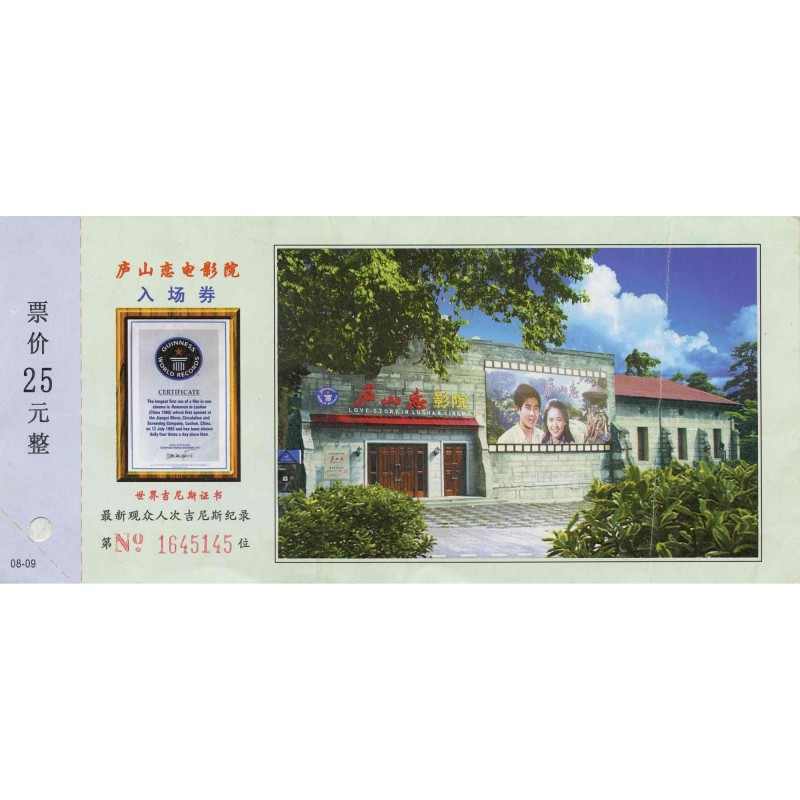 Ticket for the Romance in Lushan Cinema, built on top of Lushan mountain, where the movie Romance on Lushan Mountain has been shown daily since 1980 (earning a Guinness World Record for the Longest First-Run of a Film in One Cinema).
Ticket for the Romance in Lushan Cinema, built on top of Lushan mountain, where the movie Romance on Lushan Mountain has been shown daily since 1980 (earning a Guinness World Record for the Longest First-Run of a Film in One Cinema).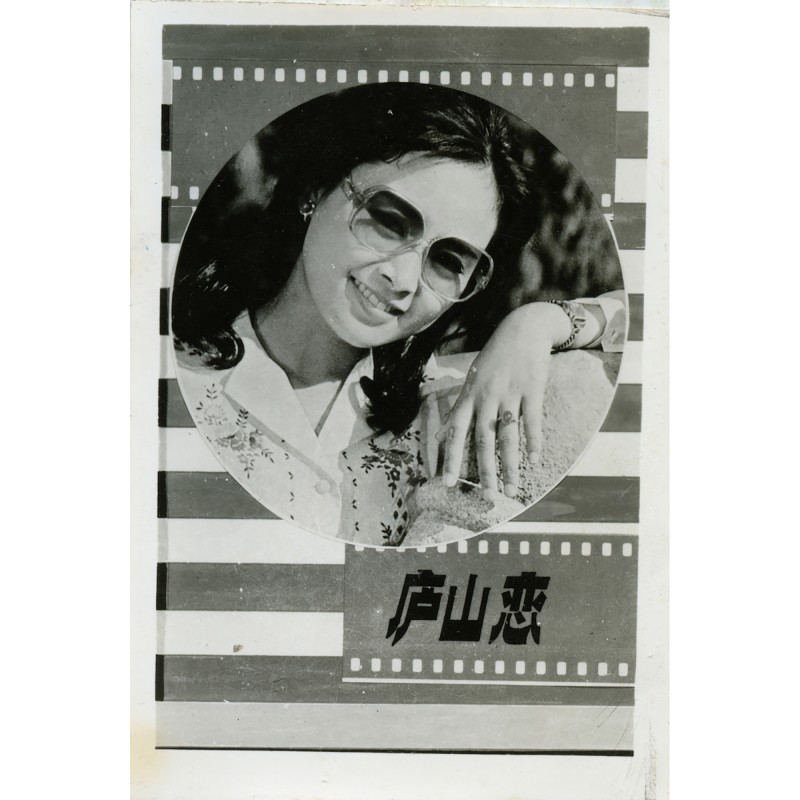 Vintage poster for the movie Romance on Lushan Mountain (1980)
Vintage poster for the movie Romance on Lushan Mountain (1980)